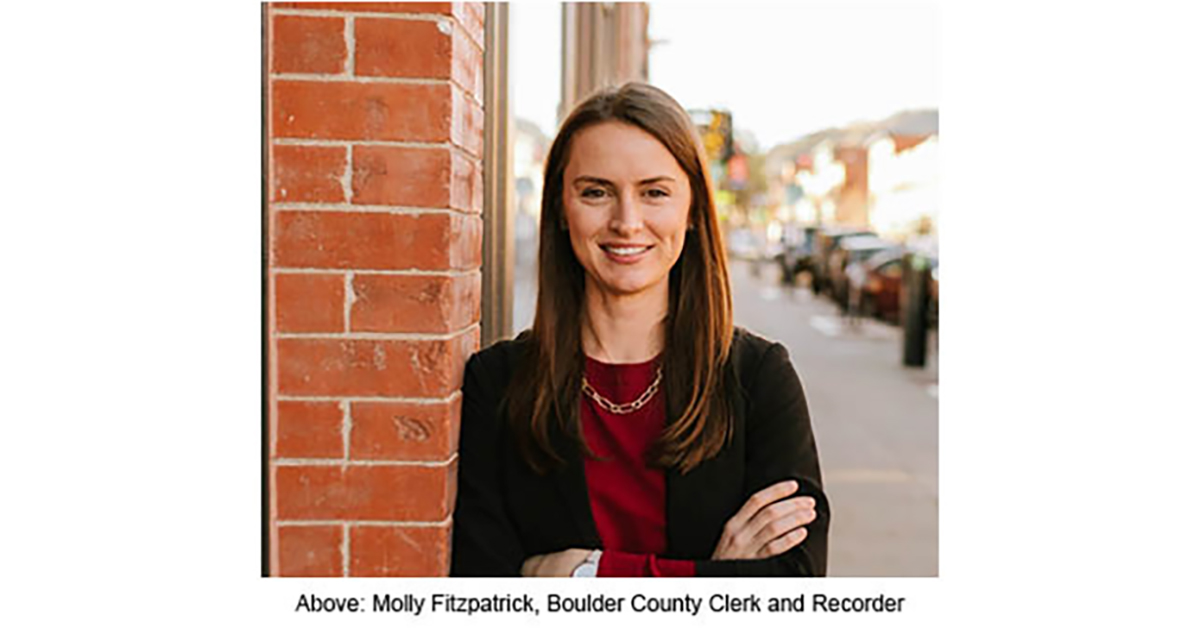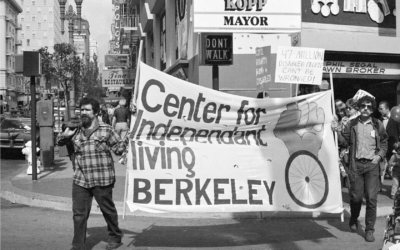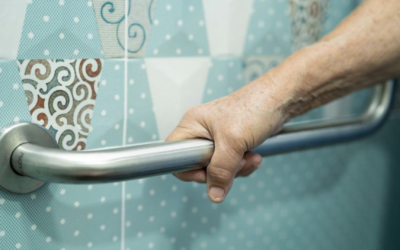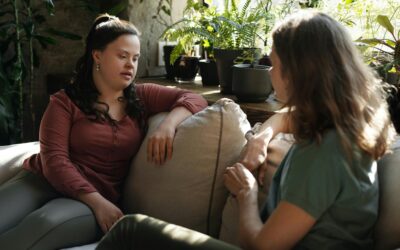This week (9/11 – 9/18/23) is Disability Voting Rights Week. It’s a time to emphasize that all citizens have the right to vote and that a disability shouldn’t be a barrier to participation in this civic right and duty. However, historically, in-person elections are not accessible for people with disabilities such as mobility and vision disabilities. Many electoral locales have accessible equipment, but this equipment is rarely set up, and more so, most election judges (the people who moderate the ballot-casting process onsite) are not trained to assist with the equipment and voting process. Some reports indicate that 1 in 7 people with disabilities have difficulty voting and that due to access barriers, people with disabilities nationally vote at a 3.6% lower rate.
Fortunately, Boulder County recognizes the right of all people to vote in elections and has proactively sought ways to create equity and accessibility for people with disabilities, and other groups such as non-English speakers and people who were formerly incarcerated.
Molly Fitzpatrick, the Boulder County Clerk and Recorder (pictured above), says she’s grateful for the work groups like CPWD do to increase awareness and accessibility. “Our goal is to facilitate the most accessible elections for all voters, and to do that we need to understand the experiences and challenges Boulder County voters face. Working with organizations like CPWD and others helps us better understand how to serve all voters effectively.”
CPWD’s relationship with Boulder County and accessible voting goes back to late 2022 when we conducted training for election judges on accessible voting equipment. The machines were set up, and people with disabilities came in to roleplay accessible voting, asking questions, and requesting assistance for election judges in training as a skills-teaching experience.
Craig Towler, CPWD’s Community Organizer recalls, “The election judge training was designed to help train election judges on accessible voting machines and provide them with practice at answering potential questions prior to election day. The intended outcome was to help better prepare election judges to increase equity and provide accurate assistance to people using the accessible voting machines.”
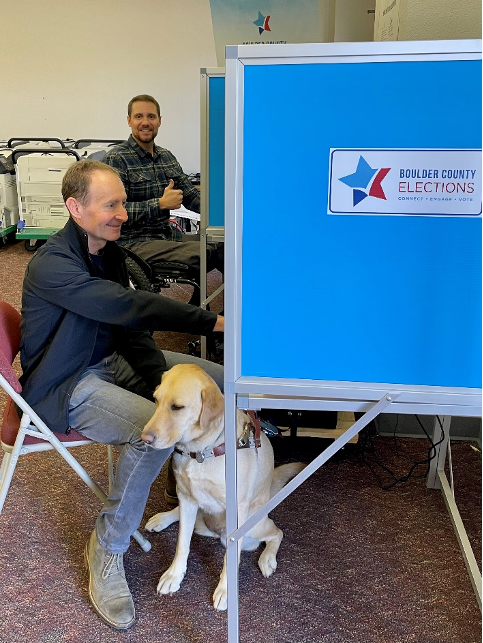
CPWD board member Michael Stone, who is blind, sits at a voting machine. His guide dog, a yellow lab, sits at his feet. In the background, Craig Towler, CPWD’s Community Organizer, looks on and gives a thumbs up. He sits in his wheelchair in front of another voting machine.
One of the role players was our board member, Michael Stone, who is blind. Amy Sonnanstine, an election judge trainee, remembers how helpful working with Michael was.
“Most memorably, Michael brought up methods of phrasing things that we had not previously considered. It may seem obvious, but where a judge might have automatically said to a voter with blindness ‘right this way’ or ‘Follow me’; instead, I learned to be more specific with directionals and distances such as ‘walk forward 5 steps and there will be a chair on your right.’ During the election, I happened to be working at a vote center the day that Michael came in to vote. It was very rewarding to see election judges use their training in real life, and to see the process go smoothly.”
Amy’s experience highlights how equity and accessibility are about more than equipment; it also requires attunement and communication skills to provide effective assistance. During the election judge training, CPWD also provided a disability etiquette education to inform the judges about appropriate and effective language, touch, and how to communicate and relate effectively to people with various disabilities.
To this point, Amy said, “I think the most important takeaway for the election judges is that asking questions is key. Every voter is different and taking the time to ask a voter what would work best for them will help ensure that the process of voting is smooth and enjoyable for everyone. I look forward to a continued partnership between Boulder County Elections and CPWD; and perhaps meeting more volunteers who want to help us to train the election judges, as well as gain experience with the voting equipment in the process.”
To lower barriers to voting for people with disabilities and all demographics, Molly and her team created a resource page called Know Your Voting Rights that outlines voting eligibility, navigating language and other accessibility barriers, and has a comprehensive Q&A including information about ADA-compliant voting equipment.
She has also compiled the experience from CPWD and other organizations into a training that all judges now take prior to working in Boulder County voting centers. “We created equity and inclusion training modules with the intention to showcase different scenarios that judges might experience on voting day and walk them through how to respond to each voter in a culturally competent manner,” she said.
Molly explained that challenges and obstacles while voting can lead to non-participation in future votes, which dilutes the voice of the community on important issues.
“Thank you for all you do,” she said. “I am grateful for Craig’s enthusiasm and effort around accessible voting and elections. If someone has a negative experience voting just once, it is likely to deter them from voting again. We are working to avoid that.”
Similarly, we are grateful for Molly and Boulder County’s proactive efforts to increase equity and accessibility. The openness of current and potential public servants to making important aspects of our community accessible to all is inspiring. We recently had a chance to sit down to talk to Boulder Mayoral candidate Nicole Speer, who shared her reflections on accessibility. Watch the short video here.
As we strive to increase equity and accessibility in many areas of public life, ensuring accessible voting is important. If you are a person with a disability, please cast your vote – it is important to the development and health of our communities. Ask for the accessible accommodations; review the Boulder County Q & A site linked above; or reach out to CPWD for assistance. Every vote makes a difference. Thank you to all the voters, people with disabilities, organizations who champion equity and accessibility, and trailblazers like Boulder County who model valuing an inclusive and equitable community.


